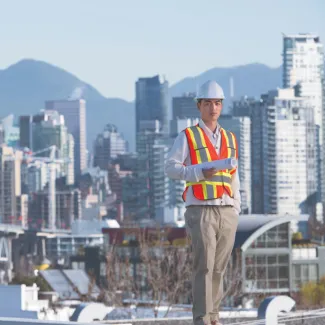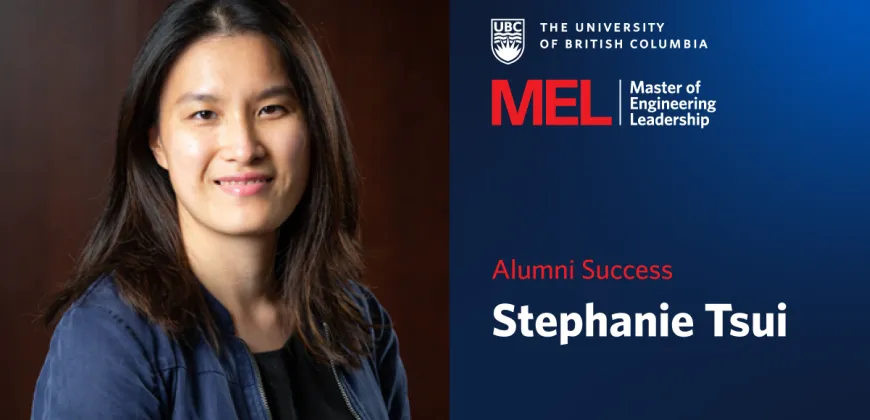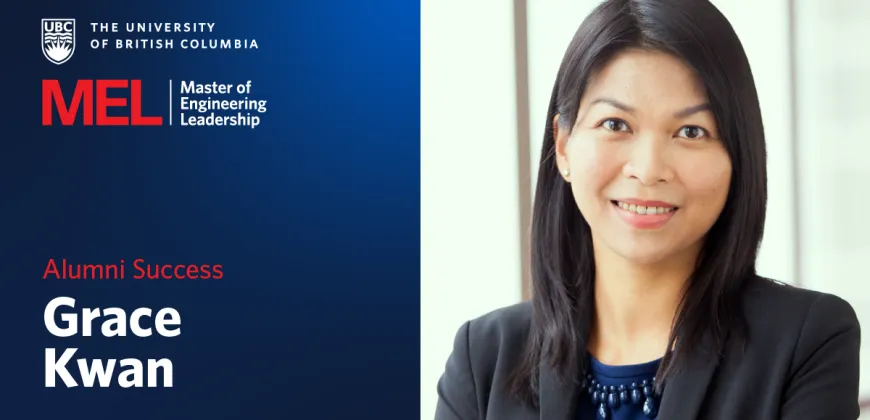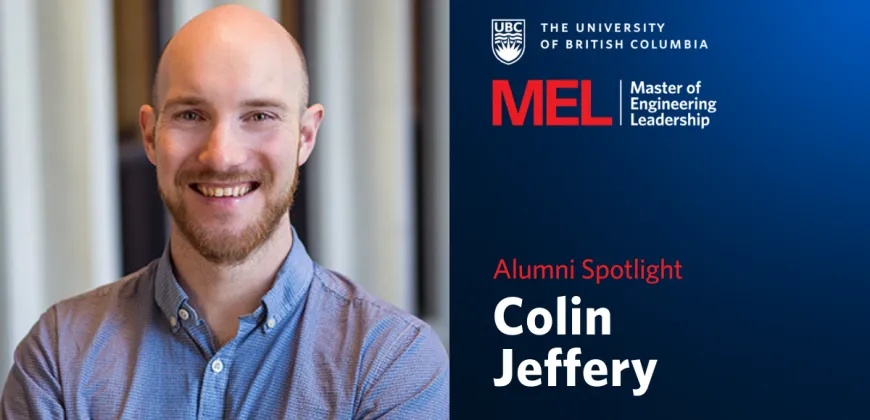Alumni Spotlight: Ayman Fahmy
A renowned expert in district energy systems, Ayman Fahmy returned to school after 22 years to pursue the MEL in Urban Systems. With his broadened knowledge of a new technical domain and skills in strategy development and business, he has advanced into higher leadership roles at his firm.
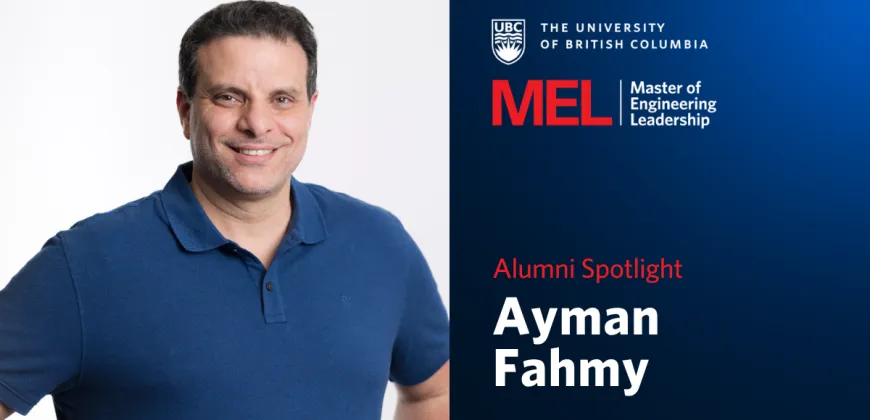
If you’re looking for a specialist in district energy, Ayman Fahmy has the credibility and expertise you need. After graduating with a degree in mechanical engineering from the American University in Cairo, Ayman worked across the Middle East where he gained expertise in district cooling plants. He moved to Canada in 2009 and has since taken on leading roles in high-profile district energy systems across the Lower Mainland through his work at Kerr Wood Leidal Associates (KWL). These include major projects at UBC, an expansion project to the district energy system at Olympic Village, as well as installations in Richmond, North Vancouver, Surrey and more.
He’s a passionate advocate for the power of district energy to reduce emissions. “The overall emissions associated with heating and cooling buildings can be around 25 per cent of all greenhouse gas emissions,” says Ayman. “District energy systems significantly reduce energy use, enabling you to reach a coefficient of performance of 3.5 – so every unit of electricity is giving you 3.5 units of heat. If you combine heating and cooling systems you can get that as high as seven.”
Ayman had reached a point in his career where he wanted to expand his business knowledge. While he considered pursuing an MBA, Ayman says that none of the programs he reviewed completely met his requirements, including the ability to work full time while doing his master’s.
“I wanted to continue doing engineering, but at a higher leadership level,” he explains. “And so it felt like a lot of the MBA coursework would not be relevant to my goals.”
When he learned about UBC’s Master of Engineering Leadership, he realized that this is what he was looking for: a professional degree that combines a technical engineering focus with business and leadership courses taught through UBC’s internationally renowned business school.
Expanding his knowledge of urban systems and business
Given Ayman’s background in mechanical engineering and his professional experience in energy systems, he could’ve chosen to do an MEL in any number of the specializations on offer, including Clean Energy Engineering and High Performance Buildings. Instead, he chose Urban Systems to expand his breadth of knowledge.
“If you look at KWL’s areas of practice, out of 13 sectors, at least eight focus on sectors with a civil engineering focus,” says Ayman. “District energy systems are also primarily urban systems. I saw the MEL in Urban Systems as an opportunity to learn more about how urban infrastructure projects intersect with policy and regulations, the interconnections of different levels of government in the urban landscape, and different project delivery models.”
The MEL in Urban Systems curriculum covers all elements of the urban infrastructure life cycle, from planning, engineering and infrastructure asset management to project delivery and economics.
“I particularly enjoyed the project delivery course as my professional experience has been on the design-bid-build side,” he says.
“It was interesting to look at a range of project delivery methods through different case studies.” Another memorable course was urban systems engineering, with field trips to major civil infrastructure projects providing a new dimension to the classroom discussions. Ayman also took an elective in economics, which was both a challenge (“one of the most difficult courses I’ve taken”) and ultimately very rewarding.
About 40 per cent of the MEL in Urban Systems curriculum consists of business and leadership classes offered through UBC Sauder’s Robert H. Lee Graduate School.
Two of the stand-out courses for Ayman were taught by program director Dr. Justin Bull. “These courses on strategy, innovation and sustainability were very helpful for thinking strategically about how to run a business that is profitable and that is doing the right thing,” he says. “The very definition of a business is that it needs to make money. A business that does not make money will fail, and even if you have the very best things at heart, you will not be able to reach your sustainability objectives. We need to push for sustainability and profitability.”
On a practical level, Ayman says he also benefited from having to do a lot of presentations over the course of the program, which enabled him to become more confident and persuasive in a variety of settings.
Moving into higher-level leadership positions
Just as he was starting the 24-month part-time MEL in Urban Systems, Ayman was promoted to energy sector leader. A year or so after graduating, Ayman was invited to become a member of KWL’s principal’s group – a group of leaders at the company that meet at least quarterly to develop strategy and agree on decisions for the company’s direction.
He believes that the interdisciplinary focus of the MEL enabled him to expand his knowledge of business, leadership, strategy and urban infrastructure so that he can add even more value to his firm, its clients and the staff he oversees.
Looking back on his time at UBC, Ayman has fond memories of being back at school and being part of a community of learners. “The last time I was doing research was in the 1990s when you had to use a card catalogue to find books in the library!,” he says. “But I learned from the younger students and I believe they learned from me and the broad spectrum of experiences and examples I was able to share from my professional career.”
